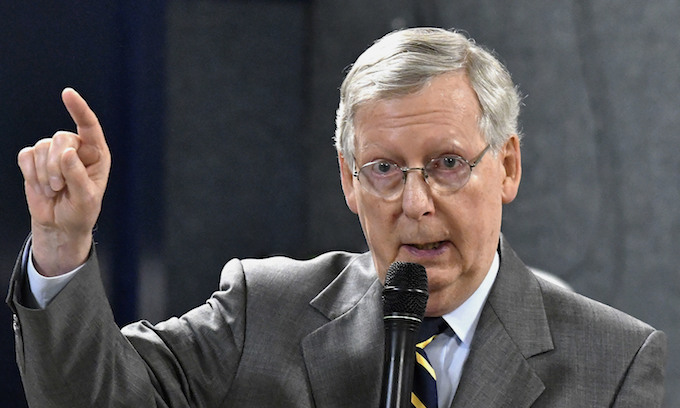WASHINGTON (TIP): Despite President Trump’s Twitter exhortations to Republican Senators shortly before the vote, Obamacare repeal failed. The President tweeted:
Donald J. Trump ✔ @realDonaldTrump
Go Republican Senators, Go! Get there after waiting for 7 years. Give America great healthcare!
10:43 PM – Jul 27, 2017
The Senate rejected legislation to repeal parts of the Affordable Care Act, with Senator John McCain casting a decisive “no.”
Senate Republicans unveiled a “skinny repeal,” a narrow measure to roll back parts of the Affordable Care Act. It would leave 15 million more Americans without insurance next year, the Congressional Budget Office said.
Speaker Ryan tried to reassure senators balking at the narrow bill, but he left the door open for “skinny” passage.
The health insurance lobby came off the sidelines Thursday, July 27, to warn Republicans against repealing the individual mandate.
While 49 Republican Senators voted for Skinny Repeal, 3 said Nay. All 48 Democrats opposed the repeal. Senate, thus, rejected the scaled-down Obamacare repeal.
Senator John McCain, Republican of Arizona, cast a decisive vote to defeat the proposal, joining two other Republicans, Susan Collins of Maine and Lisa Murkowski of Alaska, in opposing it.
The 49-51 vote was a huge setback for the majority leader, Mitch McConnell of Kentucky, who has spent the last three months trying to devise a repeal bill that could win support from members of his conference.
The truncated Republican plan was far less than what Republicans once envisioned. Republican leaders, unable to overcome complaints from both moderate and conservative members of their caucus, said the skeletal plan was just a vehicle to permit negotiations with the House, which passed a much more ambitious repeal bill in early May.
The so-called “skinny” repeal bill, as it became known at the Capitol this week, would still have broad effects on health care. The bill would increase the number of people who are uninsured by 15 million next year compared with current law, according to the nonpartisan Congressional Budget Office. Premiums for people buying insurance on their own would increase by roughly 20 percent, the budget office said.
